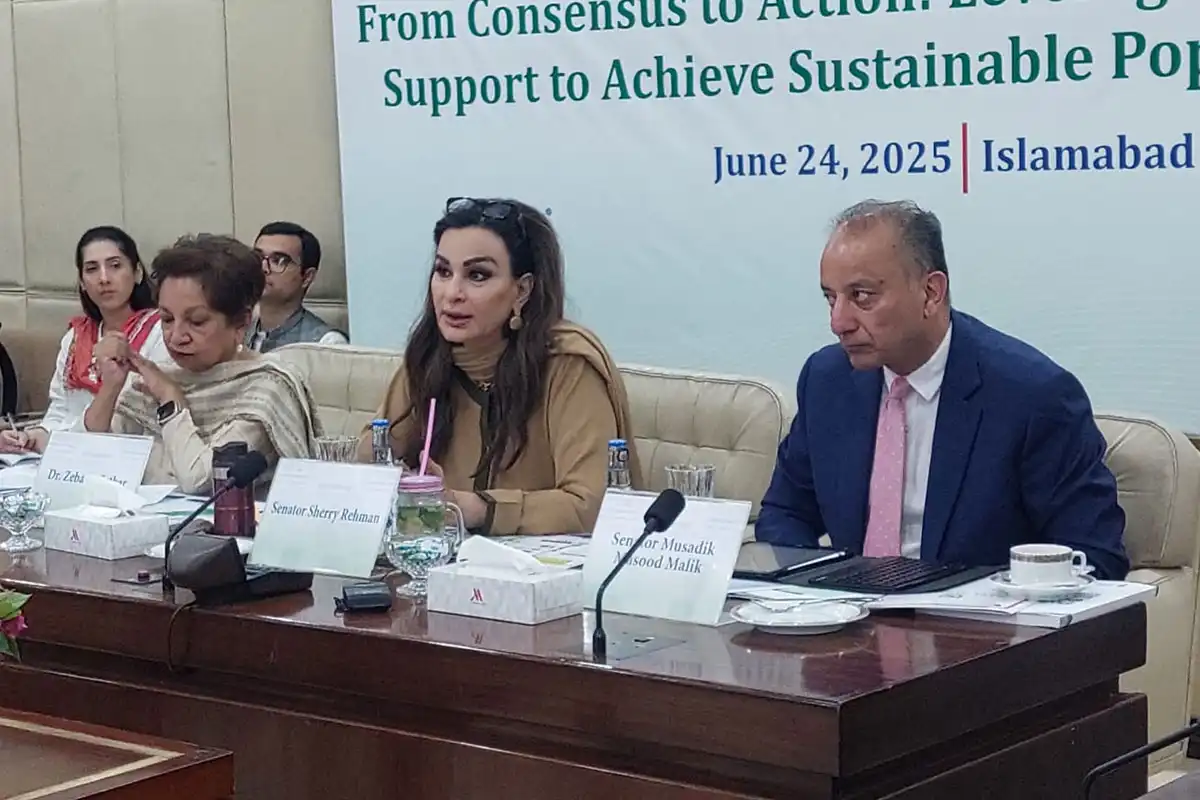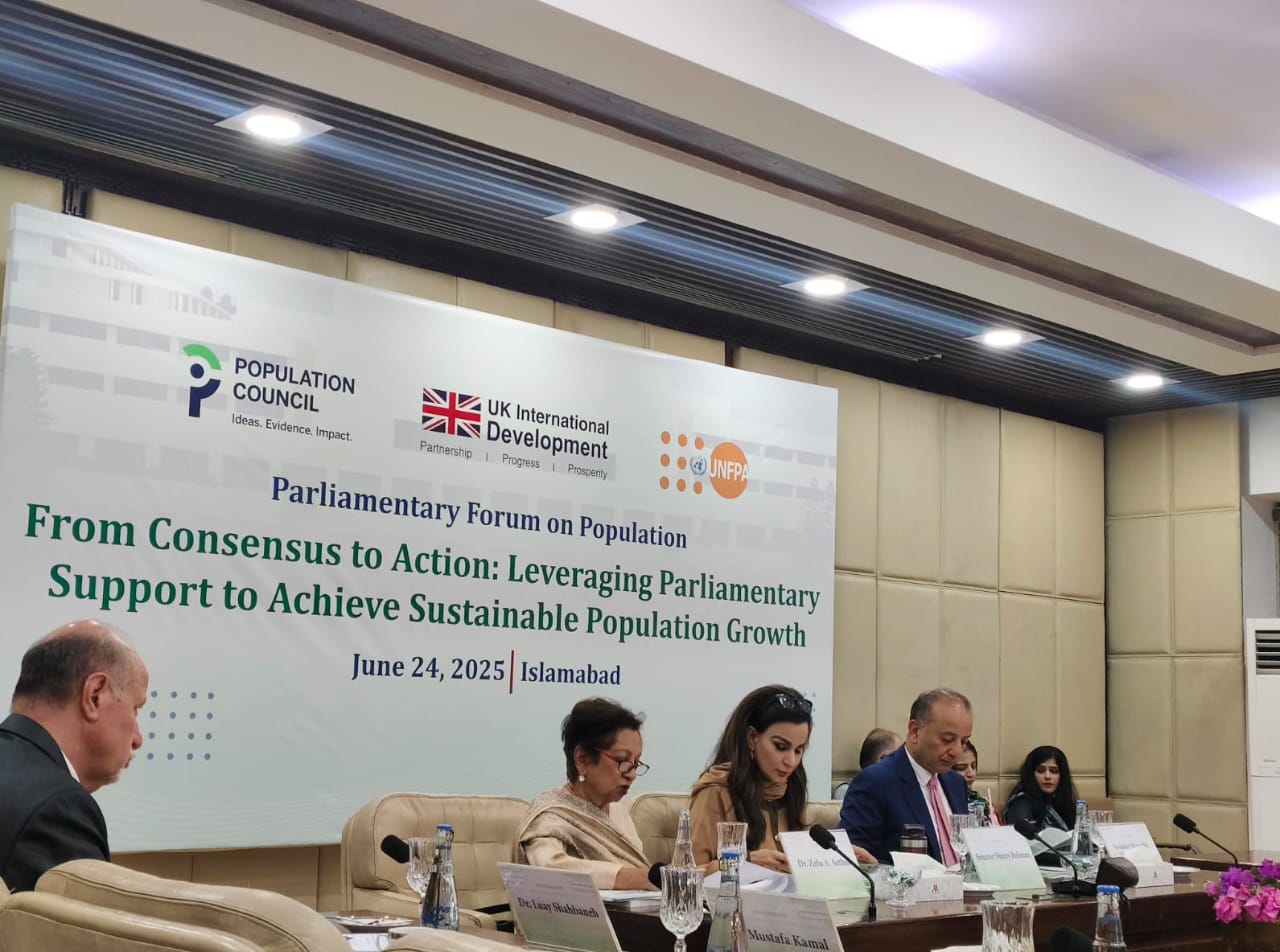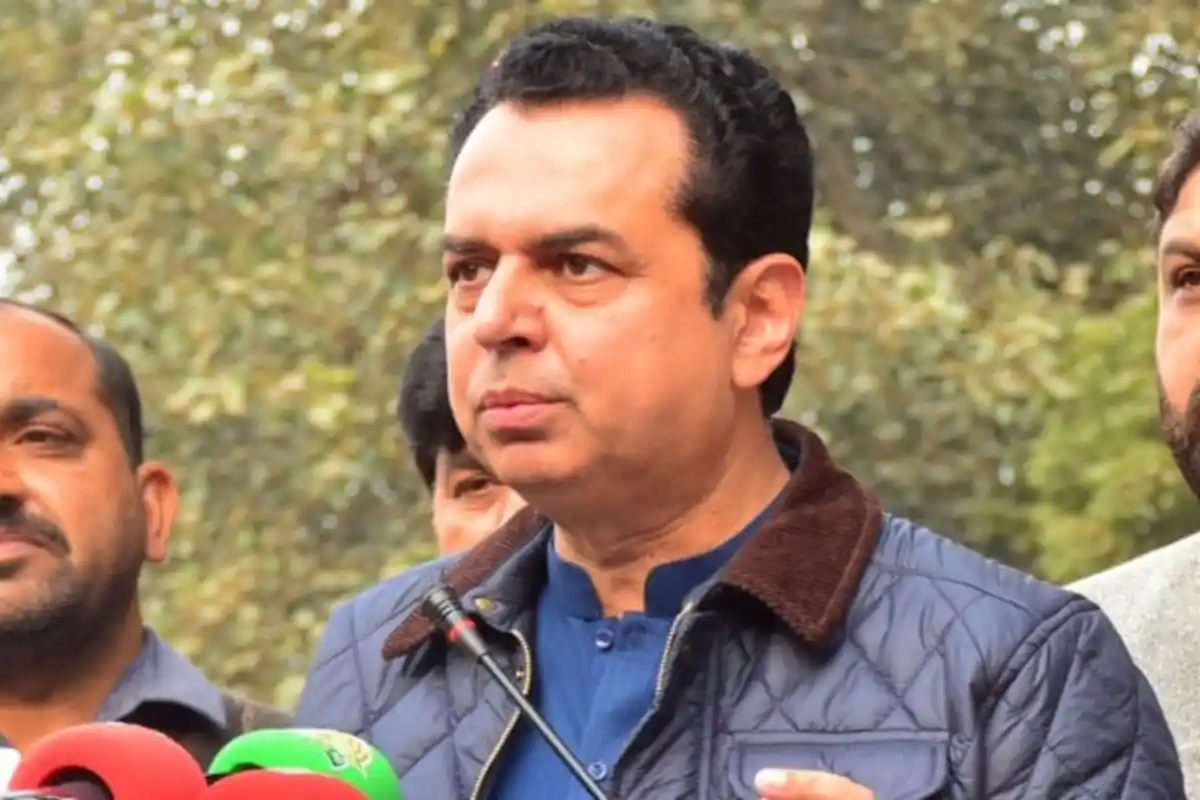Parliamentarians Unanimously Approve Resolution on Population Stabilization, Vow to Table It in National Assembly

Parliamentarians Unanimously Approve Resolution on Population Stabilization, Vow to Table It in National Assembly
Islamabad, June 24, 2025 — Held at the Parliament House, the 13th meeting of the Parliamentary Forum on Population (PFP) brought together parliamentarians from across party lines, who unanimously agreed to move a resolution in the National Assembly declaring population stabilization a national priority. The resolution will be formally tabled in the Assembly, marking a pivotal step toward aligning Pakistan’s population growth with its broader development and sustainability objectives. The meeting was organized by the Population Council in collaboration with the United Nations Population Fund (UNFPA).

In her keynote address, Chairperson of the PFP, Senator Sherry Rehman underscored the urgency of addressing Pakistan’s population challenge, stating, “Parliamentary support for population stabilization is not optional—it is essential if we are serious about taking this country forward. By bringing the PFP into Parliament, we have ensured political ownership and accountability.” She called rapid population growth “a ticking timebomb” which is straining our resources and threatening not only our health and education indicators but also the prosperity and well-being of every Pakistani family.”
Senator Dr. Musadik Malik, Federal Minister for Climate Change and Environmental Coordination, reflected on the persistent nature of the population challenge. He highlighted the sustainable development indicators and emphasized on gender equality and women empowerment. Highlighting the gravity of the situation, he noted, “Pakistan ranks 137th out of 166 countries on the SDG Index, with alarming indicators in maternal and child health, education, and access to clean water. This is not just a crisis of numbers—it is a crisis of rights. Sustainable population growth is a development imperative.” He further emphasized that Pakistan’s stagnation across key development indicators is largely attributable to its unchecked population growth.
Dr. Zeba Sathar, Country Director of the Population Council, welcomed participants and emphasized the importance of political ownership in addressing population challenges. “This forum reflects cross-party consensus and a shared realization of the urgency to bring our population growth to sustainable levels,” she said. She also urged parliamentarians to lead the charge in legislation, policymaking, and public awareness. “Family planning must be integrated into social protection programs like BISP, Mamta, and Agosh to ensure equitable access and long-term development” she stated.
Dr. Luay Shabaneh, UNFPA Country Representative, commended the Forum’s leadership and its potential to drive transformative change. “This forum can become a true champion for sustainable population growth in Pakistan, with the power to steer the country toward economic stability and inclusive development by galvanizing political will,” he said. He emphasized that the core message must centre on agency for women empowerment, reproductive rights, and gender equality.
The Forum endorsed a comprehensive set of institutional, financial, and legislative measures to advance the population stabilization agenda. Key actions include the establishment of a high-powered Population Commission at the federal level, revision of the NFC Award to de-link population size from resource allocation, the immediate release of the Rs. 10 billion non-lapsable Population Fund, and the integration of family planning into national development and social protection frameworks. Additionally, a dedicated Population Caucus will be launched to ensure cross-party oversight and accountability. Forum members were urged to serve as champions of this cause, helping to reduce gender disparities in health, education, and nutrition through sustained political commitment and action.
Members of National Assembly and Senate highlighted the deep interlinkages between population growth and every major development challenge—from maternal mortality and child nutrition to climate resilience and gender equality. With 40% of children suffering from malnutrition and lacking access to quality education, and women often excluded from decisions about their own health, the need for urgent and unified action has never been more critical.
The Forum concluded with a strong call to make population stabilization a front-line agenda item in Parliament. Parliamentarians committed to raising the issue collectively, engaging party leadership, and ensuring that population priorities are reflected in national planning and budgeting. The PFP reaffirmed its commitment to advancing the Tawazun agenda (maintaining a balance between population and resources) and called on all stakeholders—government, civil society, media, and citizens—to join in this national effort.
Catch all the Pakistan News, Breaking News Event and Trending News Updates on GTV News
Join Our Whatsapp Channel GTV Whatsapp Official Channel to get the Daily News Update & Follow us on Google News.











